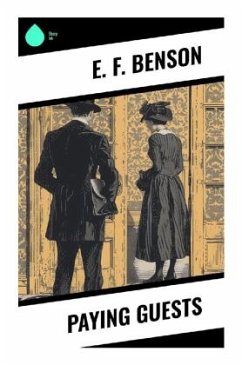E. F. Benson's "Paying Guests" delves into the intricacies of social dynamics and class relations in early 20th-century England. Written with a sharp wit and keen observational skills, this novel portrays the tensions between the genteel and the working classes through the story of a well-to-do couple who invite a young, bohemian pair of lodgers to share their home. The narrative intertwines elements of comedy and drama, employing an engaging epistolary style that captures the subtleties of human behavior and societal expectations. Benson's adept characterizations and rich dialogue faithfully reflect the cultural climate of the era, illuminating both the charm and the undercurrents of domestic life during a time of significant change in British society. E. F. Benson, a prominent writer and biographer from the Edwardian period, expertly captures the nuances of social class, a theme often prevalent in his works. Coming from a distinguished family, Benson himself was acquainted withthe tensions of societal hierarchy. His background as a writer, editor, and public figure allowed him to craft narratives that explore human relationships, often showing empathy toward characters thrust into unexpected situations, as exemplified in "Paying Guests." For readers with an interest in social critique and sharp, character-driven narratives, "Paying Guests" offers a profound exploration of love, class, and the conflict between tradition and modernity. Benson's incisive storytelling invites reflection on the enduring themes of human connection and societal structure, making the novel a worthwhile endeavor for anyone seeking a nuanced understanding of early 20th-century life.
Bitte wählen Sie Ihr Anliegen aus.
Rechnungen
Retourenschein anfordern
Bestellstatus
Storno








